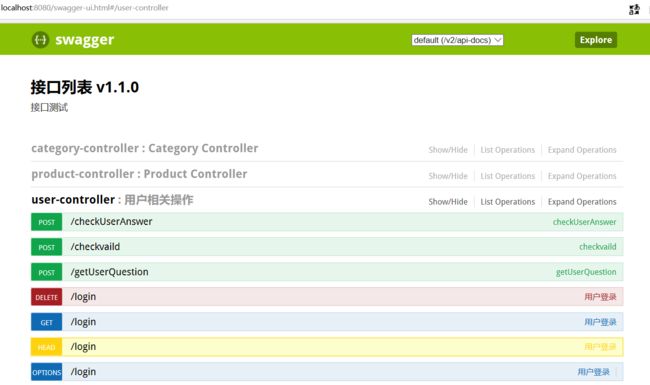- 编译链接过程
YancyKahn
编译链接编译链接GCC
编译链接过程C/C++程序从文本到可执行文件之间是一个复杂的过程.对于源代码(.c/.cpp)文件我们是不能直接运行的,必须经过一系列的处理才能转化为机器语言,再通过链接相应的文件转化为可执行程序.这个过程称为编译链接过程.本文篇幅较长,想直接看分析过程点击这里下面是从源代码到可执行文件的整个编译链接的过程:整个编译链接过程无非就分为编译过程和链接过程1.编译过程C文件编译过程又可分为:编译和汇编
- nvm管理多版本node,nvm 配置国内镜像,npm配置国内镜像
奇纳尼
npm前端node.js
目录前言nvm是什么?安装nvm配置nvm国内镜像nvm常用命令npm配置国内镜像:淘宝镜像nrm源管理命令:可以不用实际项目中会遇到的问题前言公司多个项目需要配置不同版本的node,按照传统方式一直切换下载安装不同版本的node太麻烦了,发现nvm可以管理多版本nodenvm是什么?nvm(node.jsversionmanagement),是一个nodejs的版本管理工具。nvm和n都是nod
- C语言指针入门(一)
悄悄敲敲敲
c语言开发语言
1.什么是指针?内存会划分为一个个内存单元(一个内存单元大小为1字节)每个内存单元都有一个编号即地址也被称为指针,我们可以理解为指针就是地址。通过指针可以找到其所指向的内存单元。就像我们第一次去一个朋友家时可以通过门牌号找到她的家一样,指针就是所存储数据的“门牌号”但不同的地方是在C语言中不同类型的数据在内存中所占用的字节数和存储方式是不一样的,所以我们在存取数据时不仅要知道位置信息还要知道该数据
- 基于 STC89C52 的智能秒表
@小张要努力
单片机stm3251单片机proteusmcuc++c语言
引言秒表作为一种常见的计时工具,在体育赛事、实验测量等众多场景中有着广泛应用。随着电子技术的发展,基于单片机的智能秒表凭借其高精度、多功能等优势逐渐取代传统机械秒表。本文将详细介绍一款基于STC89C52单片机的智能秒表设计,该秒表通过两位数码管进行时间显示。STC89C52单片机特性回顾STC89C52是一款性能卓越的8位CMOS微控制器。它拥有8K字节的系统可编程Flash存储器,可方便地存储
- pyspark学习rdd处理数据方法——学习记录
亭午
学习
python黑马程序员"""文件,按JSON字符串存储1.城市按销售额排名2.全部城市有哪些商品类别在售卖3.上海市有哪些商品类别在售卖"""frompysparkimportSparkConf,SparkContextimportosimportjsonos.environ['PYSPARK_PYTHON']=r"D:\anaconda\envs\py10\python.exe"#创建Spark
- uboot(bootrom的作用)
花落已飘
ubootlinuxuboot
BootROM详细讲解1.什么是BootROM?BootROM(BootRead-OnlyMemory)是一种固化在芯片内部的只读存储器(ROM),用于存放设备启动时执行的第一阶段引导代码。由于它是只读的,意味着其内容在芯片出厂时已经写入,无法更改。作用:当设备上电或复位时,BootROM负责最早的引导过程,它会初始化硬件环境,并决定从哪个存储介质加载操作系统或用户程序。2.BootROM的作用B
- 回归任务中的评价指标MAE,MSE,RMSE,R-Squared
旺旺棒棒冰
统计学习方法机器学习回归评价指标r2mse
转自博客。仅供自己学习使用,如有侵权,请联系删除分类任务的评价指标有准确率,P值,R值,F1值,而回归任务的评价指标就是MSE,RMSE,MAE、R-SquaredMSE均方误差MSE是真实值与预测值的差值的平方和然后求平均。通过平方的形式便于求导,所以常被用作线性回归的损失函数。MSE=1m∑i=1m(yi−y^i)2MSE=\frac{1}{m}\sum_{i=1}^{m}\left(y_{i
- 使用AIOps进行更好的事件管理
茵赛飞3D CAD数据转换软件
pagerdutydevops人工智能运维
DevOps为科技界带来了更加协作和高效的工作流程。随着AIOps的集成,自动化更进一步,使用人工智能为团队提供更快的根本原因分析和算法降噪。主要从采用AIOps中受益的主要领域之一是事件管理。AIOps可以帮助DevOps团队自动化工作流程,以实现更智能、更高效的事件管理,从而腾出时间让IT运营团队成员专注于创新以改善用户体验。在本文中,我们将了解AIOps如何从检测和识别到响应改进事件管理,以
- 第十八章:模板的多态力量_《C++ Templates》notes
郭涤生
c/c++c++开发语言笔记
模板的多态力量一、动态多态vs静态多态二、奇异递归模板模式(CRTP)三、策略模式(编译期策略选择)关键要点总结第一部分:多选题(10题)第二部分:设计题(5题)答案与详解多选题答案:设计题参考答案1.编译期策略选择器2.类型安全访问者模式3.概念约束数学库4.编译期工厂模式5.静态多态容器测试说明一、动态多态vs静态多态核心概念:动态多态:基于虚函数和继承体系,函数调用在运行时决定(通过虚函数表
- AI大模型编程能力对比:Deepseek&Claude&Gemini
黑夜路人(heiyeluren)
AI人工智能人工智能aiAIGC语言模型
在当今快速发展的技术领域,人工智能(AI)模型在编程和数据处理方面的应用越来越广泛。不同的AI模型因其独特的设计理念和技术优势,适用于不同的编程任务和场景。本文将对三种主流的AI模型——DeepSeekv3、GeminiFlash2.0和Claude3.5Sonnet的编程能力进行详细对比,帮助读者根据具体需求选择最合适的工具。同时对DeepSeekv3、GeminiFlash2.0和Claude
- React Native 迁移的阵痛
Ethan. L
ReactNative&JSreactnativereact.jsandroidios
背景由于我们的移动应用程序已经存在多年,经历了许多开发者的更替,因此变得越来越臃肿和难以维护。此外,我们团队中的Android开发人员一直很短缺,这导致我们在两个平台上的开发进度和质量存在巨大差异。因此,我们决定采用ReactNative技术,将原生工程迁移到该平台上,以提高应用程序的可维护性和整体性能。我在《ReactNative技术选型分析》中,阐述了对现有原生工程集成ReactNative的
- Android React Native应用逆向分析初探
byc6352
androidandroid
随着移动互联网时代的到来,用户在移动设备上花费的时间越来越多,不仅是因为移动设备方便携带,而且还因为层出不穷的大量应用提供为用户使用,以往在电脑上才能做的事情,现在仅靠一部手机就可以解决了。当前的移动设备厂商很多,但是被广泛使用的主流系统却只有两个,Android和iOS,因此现在大多数应用都会有两个版本,Android版本和iOS版本。然而这两种应用的开发方式却完全不同,移动客户端开发人员不得不
- 实时光线追踪技术:Ray Tracing_2024-07-21_02-55-16.Tex
chenjj4003
游戏开发python算法人工智能矩阵线性代数骨骼绑定开发语言
实时光线追踪技术:RayTracing实时光线追踪技术教程基础知识光线追踪原理光线追踪是一种渲染技术,它通过模拟光线在场景中的传播和反射来生成图像。在实时光线追踪中,这一过程被优化以在有限的时间内完成,通常用于游戏和实时动画。其核心原理是逆向追踪,即从观察者(摄像机)发出光线,而不是从光源发出,这样可以减少计算量。示例:光线追踪的基本算法#Python示例代码,展示如何计算光线与场景中物体的交点c
- DeepSeek:智能搜索与分析的新纪元
XRC2231
学习
在人工智能浪潮席卷全球的今天,DeepSeek如同一颗璀璨的新星,以其独特的魅力和强大的功能,在AI领域脱颖而出。DeepSeek,这一基于深度学习和数据挖掘技术的智能搜索与分析系统,不仅重新定义了搜索引擎的边界,更以其卓越的性能和广泛的应用场景,为全球用户带来了前所未有的智能体验。本文将从DeepSeek的定义、特点、应用场景、优势等方面进行全面而深入的介绍,带您领略这一新兴技术的独特魅力。一、
- 图像质量评价学习笔记02:IQA模型性能评价指标(PLCC、SROCC、KROCC、RMSE)
可靠的豆包蟹同志
图像质量评估IQA图像处理计算机视觉人工智能算法
性能好的图像质量评价(IQA)算法,其质量评测分数会与主观质量分数高度一致,IQA有许多评价指标,为了衡量方法测试结果与主观评价之间的一致性,视频质量专家组VQEG(VideoQualityExpertsGroup,目前国际上对视频质量进行标准化及性能测试的权威组织)提出了四个可以验证客观评价结果和主观评价结果之间的紧密程度的四个指标:PLCC、SROCC、KROCC和RMSE,也是目前最常用的I
- 【005安卓开发方案调研】之Flutter+Dart技术开发安卓
ThinkPet
移动app开发androidflutterdart跨平台
基于2025年国内移动开发环境现状,结合多份行业分析报告和技术文档,对Flutter+Dart开发安卓应用的技术成熟度和生态适配性分析如下:一、技术成熟度评估1.跨平台能力达到生产级标准Flutter的Skia自渲染引擎和Dart的AOT/JIT双编译模式,实现了90%以上的原生性能表现,在电商、社交、工具类应用中已无明显性能瓶颈。实测数据显示,列表滚动帧率稳定在55-60FPS,与原生开发差距小
- PyQt和PySide的区别和比较
PgosOcaml
pyqtmfcc++
PyQt和PySide的区别和比较PyQt和PySide是两个用于创建图形用户界面(GUI)的Python库。它们都是基于Qt框架,Qt是一个跨平台的应用程序和UI开发框架。本文将介绍PyQt和PySide之间的区别和比较,并提供相应的源代码示例。开发者许可证:PyQt的开发者许可证是商业许可证,因此如果您想在商业项目中业项目中使用PyQt,您需要购买相应的许可证。而Py业项目中使用PyQt,您需
- 哈尔滨工业大学DeepSeek公开课人工智能:大模型原理 技术与应用-从GPT到DeepSeek|附视频下载方法
你觉得205
人工智能机器学习大数据ai知识图谱python运维
导读INTRODUCTION今天继续哈尔滨工业大学车万翔教授带来了一场主题为“DeepSeek技术前沿与应用”的报告。本报告深入探讨了大语言模型在自然语言处理(NLP)领域的核心地位及其发展历程,从基础概念出发,延伸至语言模型在机器翻译、拼音输入法、语音识别等任务中的关键作用。强调了语言模型不仅辅助其他NLP任务,本身也蕴含大量知识,如地理信息、语义理解和推理能力。随着技术的发展,尤其是trans
- 计算机基础:编码01,无符号数编码
水饺编程
MFC学习笔记Win32学习笔记mfcc++visualstudiowindows
专栏导航本节文章分别属于《Win32学习笔记》和《MFC学习笔记》两个专栏,故划分为两个专栏导航。读者可以自行选择前往哪个专栏。(一)WIn32专栏导航上一篇:计算机基础:二进制基础13,十六进制与二进制的相互转换回到目录下一篇:计算机基础:编码02,有符号数编码,原码(二)MFC专栏导航上一篇:计算机基础:二进制基础13,十六进制与二进制的相互转换回到目录下一篇:计算机基础:编码02,有符号数编
- Python 错误处理
赔罪
Python系统学习python开发语言
目录try调用栈记录错误抛出错误练习小结在程序运行的过程中,如果发生了错误,可以事先约定返回一个错误代码,这样,就可以知道是否有错,以及出错的原因。在操作系统提供的调用中,返回错误码非常常见。比如打开文件的函数open(),成功时返回文件描述符(就是一个整数),出错时返回-1。用错误码来表示是否出错十分不便,因为函数本身应该返回的正常结果和错误码混在一起,造成调用者必须用大量的代码来判断是否出错:
- 国内 npm 镜像源推荐
PyAIGCMaster
我的学习笔记npm前端node.js
国内npm镜像源推荐除了常用的淘宝镜像(https://registry.npmmirror.com),还有以下国内npm镜像源可供选择:1.CNPM(阿里云)地址:https://r.cnpmjs.org/特点:由cnpm提供,支持同步npm官方仓库。提供更快的下载速度和稳定性。使用方法:npmconfigsetregistryhttps://r.cnpmjs.org/2.京东镜像(JFrogA
- 时序数据库QuestDB在Winform窗体应用
ryan68888
时序数据库
以下是QuestDB在Winform使用的代码://初始化privatevoidInit(){//创建数据库对象(用法和EFDappper一样通过new保证线程安全)SqlSugarClientDb=newSqlSugarClient(newConnectionConfig(){ConnectionString=“host=10.3.5.227;port=8812;username=admin;p
- 【Python Qt 基本概念】深入探讨 PySide6 与 PyQt6:选择、共存与最佳实践
泡沫o0
Qt应用开发-探索Qt的魅力与实践Python基础教程mfcc++qt开发语言python嵌入式linux
目录标题第一章:Python绑定的Qt库——PySide6与PyQt6的比较1.1PySide6与PyQt6的基本介绍1.1.1PySide6:Qt官方推荐的Python绑定1.1.2PyQt6:成熟的第三方Python绑定1.1.3主要差异:许可证1.2两者的相似性与差异性1.2.1功能和性能差异1.2.2API差异与兼容性1.3总结:选择的自由与责任第二章:在VSCode中使用PySide6与
- 第十七章:Future Directions_《C++ Templates》notes
郭涤生
c/c++c++开发语言笔记
FutureDirections核心重难点:示例代码:设计题多选题答案设计题详解核心重难点:泛型非类型模板参数允许任意类型作为非类型模板参数(如template)需解决类型推导和链接问题编译期控制流constexprif替代模板偏特化(减少代码膨胀)折叠表达式优化可变参数模板处理反射与元编程增强类型检查(is_convertible_v等)反射提案(如成员变量/函数查询)模块化支持解决传统头文件包
- 《AI大模型趣味实战 》第8集:多端适配 个人新闻头条 基于大模型和RSS聚合打造个人新闻电台(Flask WEB版) 2
带娃的IT创业者
AI大模型趣味实战人工智能flask前端
《AI大模型趣味实战》第8集:多端适配个人新闻头条基于大模型和RSS聚合打造个人新闻电台(FlaskWEB版)2摘要本文末尾介绍了如何实现新闻智能体的方法。在信息爆炸的时代,如何高效获取和筛选感兴趣的新闻内容成为一个现实问题。本文将带领读者通过Python和Flask框架,结合大模型的强大能力,构建一个个性化的新闻聚合平台,不仅能够自动收集整理各类RSS源的新闻,还能以语音播报的形式提供"新闻电台
- X.509数字证书的签名和指纹
汽车通信技术
【付费专栏】车载以太网协议数字证书
X.509是一种非常普遍的数字证书标准,由国际电信联盟(ITU)制定。它定义了证书的格式和一种验证证书有效性的方法。X.509证书的结构遵循特定的语法和编码规则,通常使用ASN.1(AbstractSyntaxNotationOne)进行描述和编码。一个典型的X.509证书通常包含:版本、序列号、签名算法、颁发者、有效期、使用者、公钥、签名、指纹等。其中,版本号表示证书是哪个版本的,不同版本的数字
- 从头开始学C语言第三十一天——void指针和const指针
神阶平天牛魔王
c语言
void指针void指针是一种不确定数据类型的指针,可以通过强制转换类型让该指针指向任何数据类型的变量。说明形式:void*对于void指针,在没有强制转换数据类型之前,不能进行指针的算术运算#includeintmain(){inta=10;void*p;p=&a;printf("%d%d\n",a,*(int*)p);return0;}printf("%d%d\n",a,*(int*)p);这
- 基于 MySQL 和 Spring Boot 的在线论坛管理系统设计与实现
城南|阿洋-计算机从小白到大神
mysqlspringboot数据库
markdownCopy✌全网粉丝20W+,csdn特邀作者、博客专家、CSDN[新星计划]导师、java领域优质创作者,博客之星、掘金/华为云/阿里云/InfoQ等平台优质作者、专注于Java、pyhton、机器学习技术领域和毕业项目实战✌哈喽兄弟们,好久不见哦~最近整理了一下之前写过的一些小项目/毕业设计。发现还是有很多存货的,想一想既然放在电脑里面也吃灰,那么还不如分享出去,没准还可以帮助到
- LTE与5G NR频段组合:理解流数和双连接模式
空间机器人
5G等射频知识专栏5G
LTE与5GNR频段组合:理解流数和双连接模式在现代移动通信技术中,LTE(4G)和5GNR(NewRadio)的频段组合是提高网络吞吐量、降低延迟和提升用户体验的关键之一。为了最大化数据传输速率,运营商往往采用载波聚合(CarrierAggregation,CA)和双连接(DualConnectivity,ENDC)技术来将多个频段组合在一起。本文将详细讲解LTE和5GNR各种频段组合的流数支持
- LeetCode剑指offer题目记录3
t.y.Tang
LeetCode记录学语言c++leetcode哈希算法
leetcode刷题开始啦,每天记录几道题.目录剑指offer05.替换空格题目描述思路pythonC++剑指offer06.从尾到头打印链表题目描述思路1python思路2pythonC++剑指offer05.替换空格题目描述让我们实现一个函数,把字符串s中的每个空格替换为%20.思路这个题目我只能想到遍历,在空间控制上应该有原地修改的办法会省一些.python如果用python,那直接用spl
- jsonp 常用util方法
hw1287789687
jsonpjsonp常用方法jsonp callback
jsonp 常用java方法
(1)以jsonp的形式返回:函数名(json字符串)
/***
* 用于jsonp调用
* @param map : 用于构造json数据
* @param callback : 回调的javascript方法名
* @param filters : <code>SimpleBeanPropertyFilter theFilt
- 多线程场景
alafqq
多线程
0
能不能简单描述一下你在java web开发中需要用到多线程编程的场景?0
对多线程有些了解,但是不太清楚具体的应用场景,能简单说一下你遇到的多线程编程的场景吗?
Java多线程
2012年11月23日 15:41 Young9007 Young9007
4
0 0 4
Comment添加评论关注(2)
3个答案 按时间排序 按投票排序
0
0
最典型的如:
1、
- Maven学习——修改Maven的本地仓库路径
Kai_Ge
maven
安装Maven后我们会在用户目录下发现.m2 文件夹。默认情况下,该文件夹下放置了Maven本地仓库.m2/repository。所有的Maven构件(artifact)都被存储到该仓库中,以方便重用。但是windows用户的操作系统都安装在C盘,把Maven仓库放到C盘是很危险的,为此我们需要修改Maven的本地仓库路径。
- placeholder的浏览器兼容
120153216
placeholder
【前言】
自从html5引入placeholder后,问题就来了,
不支持html5的浏览器也先有这样的效果,
各种兼容,之前考虑,今天测试人员逮住不放,
想了个解决办法,看样子还行,记录一下。
【原理】
不使用placeholder,而是模拟placeholder的效果,
大概就是用focus和focusout效果。
【代码】
<scrip
- debian_用iso文件创建本地apt源
2002wmj
Debian
1.将N个debian-506-amd64-DVD-N.iso存放于本地或其他媒介内,本例是放在本机/iso/目录下
2.创建N个挂载点目录
如下:
debian:~#mkdir –r /media/dvd1
debian:~#mkdir –r /media/dvd2
debian:~#mkdir –r /media/dvd3
….
debian:~#mkdir –r /media
- SQLSERVER耗时最长的SQL
357029540
SQL Server
对于DBA来说,经常要知道存储过程的某些信息:
1. 执行了多少次
2. 执行的执行计划如何
3. 执行的平均读写如何
4. 执行平均需要多少时间
列名 &
- com/genuitec/eclipse/j2eedt/core/J2EEProjectUtil
7454103
eclipse
今天eclipse突然报了com/genuitec/eclipse/j2eedt/core/J2EEProjectUtil 错误,并且工程文件打不开了,在网上找了一下资料,然后按照方法操作了一遍,好了,解决方法如下:
错误提示信息:
An error has occurred.See error log for more details.
Reason:
com/genuitec/
- 用正则删除文本中的html标签
adminjun
javahtml正则表达式去掉html标签
使用文本编辑器录入文章存入数据中的文本是HTML标签格式,由于业务需要对HTML标签进行去除只保留纯净的文本内容,于是乎Java实现自动过滤。
如下:
public static String Html2Text(String inputString) {
String htmlStr = inputString; // 含html标签的字符串
String textSt
- 嵌入式系统设计中常用总线和接口
aijuans
linux 基础
嵌入式系统设计中常用总线和接口
任何一个微处理器都要与一定数量的部件和外围设备连接,但如果将各部件和每一种外围设备都分别用一组线路与CPU直接连接,那么连线
- Java函数调用方式——按值传递
ayaoxinchao
java按值传递对象基础数据类型
Java使用按值传递的函数调用方式,这往往使我感到迷惑。因为在基础数据类型和对象的传递上,我就会纠结于到底是按值传递,还是按引用传递。其实经过学习,Java在任何地方,都一直发挥着按值传递的本色。
首先,让我们看一看基础数据类型是如何按值传递的。
public static void main(String[] args) {
int a = 2;
- ios音量线性下降
bewithme
ios音量
直接上代码吧
//second 几秒内下降为0
- (void)reduceVolume:(int)second {
KGVoicePlayer *player = [KGVoicePlayer defaultPlayer];
if (!_flag) {
_tempVolume = player.volume;
- 与其怨它不如爱它
bijian1013
选择理想职业规划
抱怨工作是年轻人的常态,但爱工作才是积极的心态,与其怨它不如爱它。
一般来说,在公司干了一两年后,不少年轻人容易产生怨言,除了具体的埋怨公司“扭门”,埋怨上司无能以外,也有许多人是因为根本不爱自已的那份工作,工作完全成了谋生的手段,跟自已的性格、专业、爱好都相差甚远。
- 一边时间不够用一边浪费时间
bingyingao
工作时间浪费
一方面感觉时间严重不够用,另一方面又在不停的浪费时间。
每一个周末,晚上熬夜看电影到凌晨一点,早上起不来一直睡到10点钟,10点钟起床,吃饭后玩手机到下午一点。
精神还是很差,下午像一直野鬼在城市里晃荡。
为何不尝试晚上10点钟就睡,早上7点就起,时间完全是一样的,把看电影的时间换到早上,精神好,气色好,一天好状态。
控制让自己周末早睡早起,你就成功了一半。
有多少个工作
- 【Scala八】Scala核心二:隐式转换
bit1129
scala
Implicits work like this: if you call a method on a Scala object, and the Scala compiler does not see a definition for that method in the class definition for that object, the compiler will try to con
- sudoku slover in Haskell (2)
bookjovi
haskellsudoku
继续精简haskell版的sudoku程序,稍微改了一下,这次用了8行,同时性能也提高了很多,对每个空格的所有解不是通过尝试算出来的,而是直接得出。
board = [0,3,4,1,7,0,5,0,0,
0,6,0,0,0,8,3,0,1,
7,0,0,3,0,0,0,0,6,
5,0,0,6,4,0,8,0,7,
- Java-Collections Framework学习与总结-HashSet和LinkedHashSet
BrokenDreams
linkedhashset
本篇总结一下两个常用的集合类HashSet和LinkedHashSet。
它们都实现了相同接口java.util.Set。Set表示一种元素无序且不可重复的集合;之前总结过的java.util.List表示一种元素可重复且有序
- 读《研磨设计模式》-代码笔记-备忘录模式-Memento
bylijinnan
java设计模式
声明: 本文只为方便我个人查阅和理解,详细的分析以及源代码请移步 原作者的博客http://chjavach.iteye.com/
import java.util.ArrayList;
import java.util.List;
/*
* 备忘录模式的功能是,在不破坏封装性的前提下,捕获一个对象的内部状态,并在对象之外保存这个状态,为以后的状态恢复作“备忘”
- 《RAW格式照片处理专业技法》笔记
cherishLC
PS
注意,这不是教程!仅记录楼主之前不太了解的
一、色彩(空间)管理
作者建议采用ProRGB(色域最广),但camera raw中设为ProRGB,而PS中则在ProRGB的基础上,将gamma值设为了1.8(更符合人眼)
注意:bridge、camera raw怎么设置显示、输出的颜色都是正确的(会读取文件内的颜色配置文件),但用PS输出jpg文件时,必须先用Edit->conv
- 使用 Git 下载 Spring 源码 编译 for Eclipse
crabdave
eclipse
使用 Git 下载 Spring 源码 编译 for Eclipse
1、安装gradle,下载 http://www.gradle.org/downloads
配置环境变量GRADLE_HOME,配置PATH %GRADLE_HOME%/bin,cmd,gradle -v
2、spring4 用jdk8 下载 https://jdk8.java.
- mysql连接拒绝问题
daizj
mysql登录权限
mysql中在其它机器连接mysql服务器时报错问题汇总
一、[running]
[email protected]:~$mysql -uroot -h 192.168.9.108 -p //带-p参数,在下一步进行密码输入
Enter password: //无字符串输入
ERROR 1045 (28000): Access
- Google Chrome 为何打压 H.264
dsjt
applehtml5chromeGoogle
Google 今天在 Chromium 官方博客宣布由于 H.264 编解码器并非开放标准,Chrome 将在几个月后正式停止对 H.264 视频解码的支持,全面采用开放的 WebM 和 Theora 格式。
Google 在博客上表示,自从 WebM 视频编解码器推出以后,在性能、厂商支持以及独立性方面已经取得了很大的进步,为了与 Chromium 现有支持的編解码器保持一致,Chrome
- yii 获取控制器名 和方法名
dcj3sjt126com
yiiframework
1. 获取控制器名
在控制器中获取控制器名: $name = $this->getId();
在视图中获取控制器名: $name = Yii::app()->controller->id;
2. 获取动作名
在控制器beforeAction()回调函数中获取动作名: $name =
- Android知识总结(二)
come_for_dream
android
明天要考试了,速速总结如下
1、Activity的启动模式
standard:每次调用Activity的时候都创建一个(可以有多个相同的实例,也允许多个相同Activity叠加。)
singleTop:可以有多个实例,但是不允许多个相同Activity叠加。即,如果Ac
- 高洛峰收徒第二期:寻找未来的“技术大牛” ——折腾一年,奖励20万元
gcq511120594
工作项目管理
高洛峰,兄弟连IT教育合伙人、猿代码创始人、PHP培训第一人、《细说PHP》作者、软件开发工程师、《IT峰播》主创人、PHP讲师的鼻祖!
首期现在的进程刚刚过半,徒弟们真的很棒,人品都没的说,团结互助,学习刻苦,工作认真积极,灵活上进。我几乎会把他们全部留下来,现在已有一多半安排了实际的工作,并取得了很好的成绩。等他们出徒之日,凭他们的能力一定能够拿到高薪,而且我还承诺过一个徒弟,当他拿到大学毕
- linux expect
heipark
expect
1. 创建、编辑文件go.sh
#!/usr/bin/expect
spawn sudo su admin
expect "*password*" { send "13456\r\n" }
interact
2. 设置权限
chmod u+x go.sh 3.
- Spring4.1新特性——静态资源处理增强
jinnianshilongnian
spring 4.1
目录
Spring4.1新特性——综述
Spring4.1新特性——Spring核心部分及其他
Spring4.1新特性——Spring缓存框架增强
Spring4.1新特性——异步调用和事件机制的异常处理
Spring4.1新特性——数据库集成测试脚本初始化
Spring4.1新特性——Spring MVC增强
Spring4.1新特性——页面自动化测试框架Spring MVC T
- idea ubuntuxia 乱码
liyonghui160com
1.首先需要在windows字体目录下或者其它地方找到simsun.ttf 这个 字体文件。
2.在ubuntu 下可以执行下面操作安装该字体:
sudo mkdir /usr/share/fonts/truetype/simsun
sudo cp simsun.ttf /usr/share/fonts/truetype/simsun
fc-cache -f -v
- 改良程序的11技巧
pda158
技巧
有很多理由都能说明为什么我们应该写出清晰、可读性好的程序。最重要的一点,程序你只写一次,但以后会无数次的阅读。当你第二天回头来看你的代码 时,你就要开始阅读它了。当你把代码拿给其他人看时,他必须阅读你的代码。因此,在编写时多花一点时间,你会在阅读它时节省大量的时间。
让我们看一些基本的编程技巧:
尽量保持方法简短
永远永远不要把同一个变量用于多个不同的
- 300个涵盖IT各方面的免费资源(下)——工作与学习篇
shoothao
创业免费资源学习课程远程工作
工作与生产效率:
A. 背景声音
Noisli:背景噪音与颜色生成器。
Noizio:环境声均衡器。
Defonic:世界上任何的声响都可混合成美丽的旋律。
Designers.mx:设计者为设计者所准备的播放列表。
Coffitivity:这里的声音就像咖啡馆里放的一样。
B. 避免注意力分散
Self Co
- 深入浅出RPC
uule
rpc
深入浅出RPC-浅出篇
深入浅出RPC-深入篇
RPC
Remote Procedure Call Protocol
远程过程调用协议
它是一种通过网络从远程计算机程序上请求服务,而不需要了解底层网络技术的协议。RPC协议假定某些传输协议的存在,如TCP或UDP,为通信程序之间携带信息数据。在OSI网络通信模型中,RPC跨越了传输层和应用层。RPC使得开发
